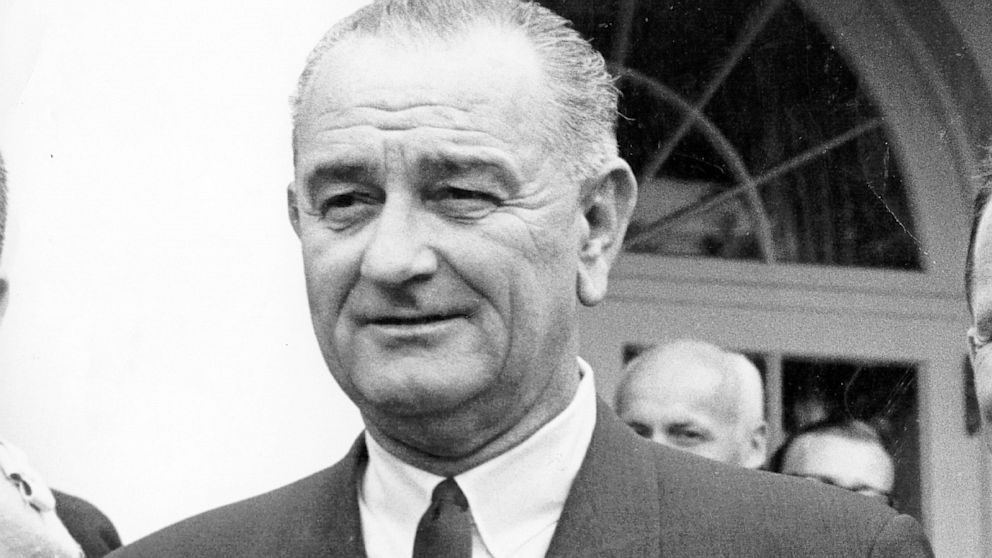This Week In History
From Martin Luther King to Thurgood Marshall, check out this week in history.

Aug. 27, 2013 -- intro: Not only does this week mark the 50th anniversary of Martin Luther King Jr.'s historic "I Have a Dream" speech, but it also celebrates the adoption of the 19th Amendment, the birth of President Lyndon B. Johnson and the appointment of Thurgood Marshall to the Supreme Court. Check out the full story of these events and more in this edition of This Week in History.
quicklist:1title: August 26text: 1920 - 19th Amendment Adopted
After decades of struggle, women were finally granted the right to vote on Aug. 26, 1920, with the formal adoption of the 19th Amendment.
Following a nearly three-year-long ratification process, Tennessee became the 36th state to adopt the legislation on Aug. 18, 1920, thereby giving it the necessary two-thirds state majority support to become a national law.
The two sections of the legislation were direct and simple: "The right of citizens of the United States to vote shall not be denied or abridged by the United States or by any State on the account of sex," followed by, "Congress shall have power to enforce this article by appropriate legislation."
Despite the 19th Amendment's historic significance, then-Secretary of State Bainbridge Colby signed the amendment into law without any formal ceremony, and none of the leaders of the suffrage movement were present at its signing.
media:20084360
quicklist:2title:August 27text:1908 - President Lyndon B. Johnson Born
Future President Lyndon B. Johnson was born on Aug. 27, 1908, on a farm near Stonewall, Texas.
Johnson worked his way through an impoverished childhood and entered politics as a member of the House of Representatives in 1937. He then served in the Navy during World War II, earning the honor of the Silver Star for bravery. After the war, Johnson returned to politics, this time serving in the Senate and later becoming the Senate's majority leader in 1954.
President John F. Kennedy chose Johnson as his presidential running mate in 1960, but his political career took a somewhat unexpected turn when he was sworn in as president following Kennedy's assassination.
Though Johnson's presidential term is often associated with the Vietnam War, his legacy also notably includes the passing of significant legislation that addressed civil rights, health care and education reforms.
media:20084196
quicklist:3title:August 28text:1963 - Martin Luther King Jr. Delivers "I Have a Dream" Speech
Martin Luther King Jr. addressed more than 250,000 people who gathered at the nation's capital to protest civil rights inequalities on Aug. 28, 1963, by delivering his now famous "I Have a Dream" speech.
Overcome with the energy of the moment, King, who was the last speaker of the day, launched into an improvised sermon at the end of his prepared speech.
Speaking about the importance of nonviolent protests and the struggle for freedom, King told the crowds that although there was still much struggle ahead, the power of the civil rights movement could not be ignored.
"I have a dream that one day this nation will rise up and live out the true meaning of its creed," he said. "I have a dream that my four little children will one day live in a nation where they will not be judged by the color of their skin but by the content of their character. I have a dream today."
The improvisation would be remembered as one of the most important speeches in American history.
media:20048587
quicklist:4title:August 29text:2005 - Hurricane Katrina Hits New Orleans
Hurricane Katrina Hit New Orleans, La., as a category 4 storm on Aug. 29, 2005. The storm was not the strongest of its kind during the 2005 hurricane season, but its effects caused one of the greatest natural disasters in the history of the United States.
Tens of thousands of people were displaced due to widespread flooding, and immediate rescue plans at the New Orleans Convention Center and the Louisiana Superdome resulted in unsanitary conditions.
Tensions grew as federal response time lagged, and reports of criminal activity in the area surfaced.
As weeks went on, the situation did not seem to improve much, leading to intense criticism of both President George W. Bush and the Federal Emergency Management Agency (FEMA). The extent of the controversy eventually led to the resignation of FEMA's head, Michael Brown.
media:20084598
quicklist:5title:August 30 text:1967 - Thurgood Marshall Confirmed to Supreme Court
Thurgood Marshall became the first African-American Supreme Court Justice on Aug. 30, 1967.
Before joining the other justices on the Supreme Court bench, Marshall earned his notoriety as a litigator with his victory in the case of Brown v. Board of Education of Topeka. In that historic civil rights case, Marshall argued that the "separate but equal" designation was discriminatory and unlawful.
President John F. Kennedy appointed Marshall to the U.S. Court of Appeals for the Second Circuit in 1961, and President Lyndon B. Johnson appointed him solicitor general four years later. Following the retirement of Justice Tom Clark, Johnson appointed Marshall to the Supreme Court and the motion was confirmed by the Senate in a 69-11 vote.
As a Supreme Court Justice, Marshall left a more liberal-leaning legacy on the law, favoring abortion rights and arguing against the death penalty.
media:20084419




